
Filter News
Area of Research
- (-) Biology and Environment (18)
- (-) Neutron Science (2)
- Biology and Soft Matter (1)
- Building Technologies (3)
- Computer Science (1)
- Electricity and Smart Grid (1)
- Energy Science (61)
- Functional Materials for Energy (1)
- Fusion and Fission (3)
- Materials (9)
- National Security (2)
- Nuclear Science and Technology (1)
- Supercomputing (6)
- Transportation Systems (1)
News Topics
- (-) Buildings (2)
- 3-D Printing/Advanced Manufacturing (15)
- Advanced Reactors (2)
- Artificial Intelligence (14)
- Big Data (11)
- Bioenergy (52)
- Biology (78)
- Biomedical (29)
- Biotechnology (14)
- Chemical Sciences (15)
- Clean Water (13)
- Composites (5)
- Computer Science (31)
- Coronavirus (20)
- Critical Materials (1)
- Cybersecurity (1)
- Energy Storage (13)
- Environment (99)
- Exascale Computing (4)
- Fossil Energy (1)
- Frontier (4)
- Fusion (1)
- Grid (3)
- High-Performance Computing (22)
- Hydropower (9)
- Isotopes (2)
- Machine Learning (11)
- Materials (25)
- Materials Science (28)
- Mathematics (4)
- Mercury (7)
- Microscopy (13)
- Molten Salt (1)
- Nanotechnology (17)
- National Security (5)
- Neutron Science (120)
- Nuclear Energy (4)
- Partnerships (6)
- Physics (11)
- Polymers (3)
- Quantum Computing (1)
- Quantum Science (7)
- Security (4)
- Simulation (15)
- Space Exploration (3)
- Summit (15)
- Transportation (8)
Media Contacts
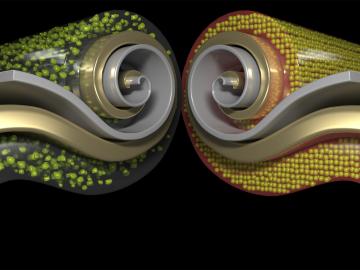
Researchers at ORNL have developed a new method for producing a key component of lithium-ion batteries. The result is a more affordable battery from a faster, less wasteful process that uses less toxic material.
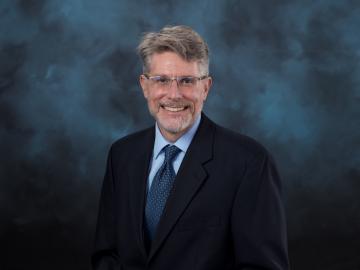
ORNL appointed Peter Thornton as director of its Climate Change Science Institute, or CCSI, effective November 1, 2022.
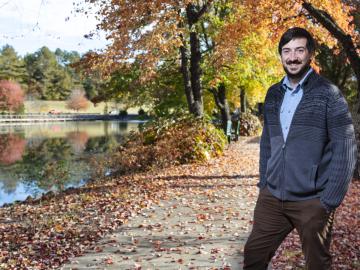
Matthew Craig grew up eagerly exploring the forest patches and knee-high waterfalls just beyond his backyard in central Illinois’ corn belt. Today, that natural curiosity and the expertise he’s cultivated in biogeochemistry and ecology are focused on how carbon cycles in and out of soils, a process that can have tremendous impact on the Earth’s climate.
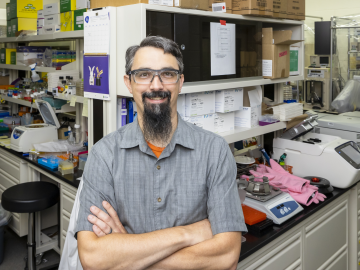
Scientists working on a solution for plastic waste have developed a two-step chemical and biological process to break down and upcycle mixed plastics into valuable bioproducts.

Five technologies invented by scientists at the Department of Energy’s Oak Ridge National Laboratory have been selected for targeted investment through ORNL’s Technology Innovation Program.

Chemical and environmental engineer Samarthya Bhagia is focused on achieving carbon neutrality and a circular economy by designing new plant-based materials for a range of applications from energy storage devices and sensors to environmentally friendly bioplastics.

Science has taken Melanie Mayes from Tennessee to the tropics, studying some of the most important ecosystems in the world.
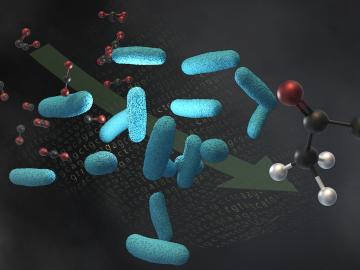
A team of scientists from LanzaTech, Northwestern University and ORNL have developed carbon capture technology that harnesses emissions from industrial processes to produce acetone and isopropanol
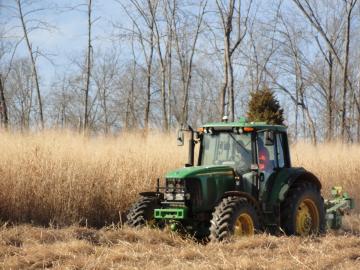
Energy and sustainability experts from ORNL, industry, universities and the federal government recently identified key focus areas to meet the challenge of successfully decarbonizing the agriculture sector
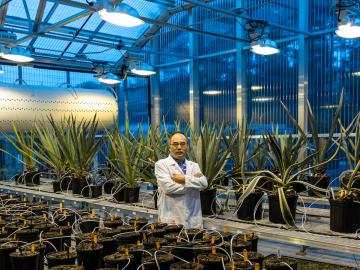
Scientists at ORNL have discovered a single gene that simultaneously boosts plant growth and tolerance for stresses such as drought and salt, all while tackling the root cause of climate change by enabling plants to pull more carbon dioxide from the atmosphere.


